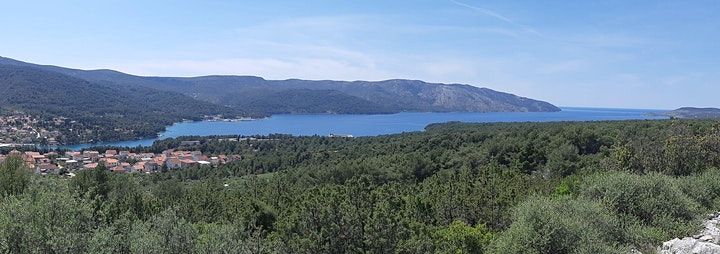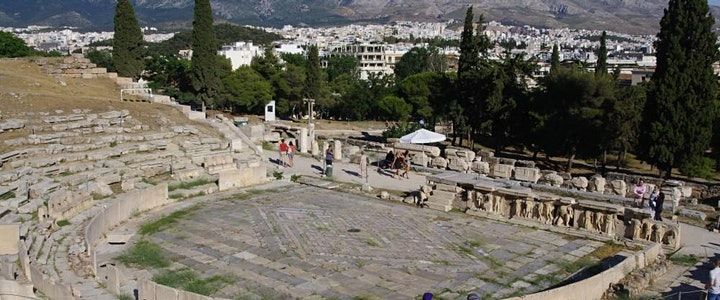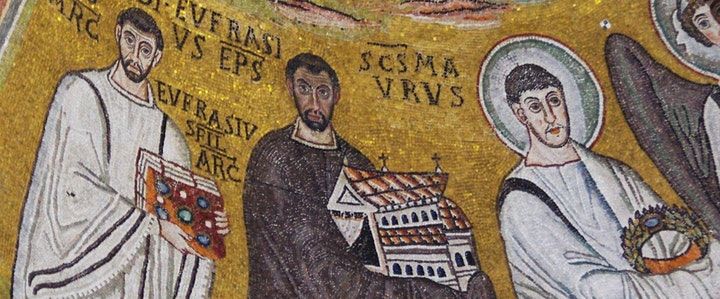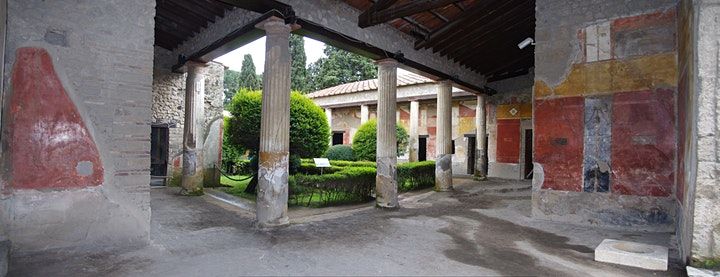
About this Event
Spend a week this January at Melbourne’s Hellenic Museum, exploring the spectacular and fascinating world of the ancient Greeks and Romans. The Hellenic Museum Summer School offers a series of informative, relaxed and entertaining short courses. Anyone is welcome!
Sessions will take place in person and online. People taking part online can participate live or watch recorded lectures at a time of their convenience.
If you wish to participate online only, please register through .
Four subjects are on offer:
- The Ancient Adriatic: Trade, Colonisation and Conflict
- Understanding Greek Theatre Like an Ancient Greek
- Architecture from Pagan Rome to Christianity
- At Home with the Greeks and Romans
Each subject consists of five 1-hour sessions, delivered across five days. Details below.
Participants can enrol in one, two, three or all four courses. A discount applies if enrolling in all courses.

1. The Ancient Adriatic: Trade, Colonisation and Conflict
Sitting between Greece and Italy, the Adriatic Sea played a crucial role in antiquity connecting Greeks, Etruscans, Romans, Illyrians and others. This course looks at the fascinating history of the Adriatic in the first millennium BC and the important role it played for the surrounding cultures. We look at the way that broader historic events affected the Adriatic communities, the way that events in the Adriatic shaped the world beyond and the various attempts to create an Adriatic empire. A particular focus for the course is the interactions between cultures, whether through trade, war, piracy or the complex relationships involved in colonisation.
- Session 1: The Sea and the Surrounding Peoples
- Session 2: The First Greek Colonists
- Session 3: Adriatic Empires
- Session 4: Greeks and Illyrians
- Session 5: The Roman Conquest
5 x 1-hour sessions
10.00–11.00 am each day (Australian Eastern Daylight Savings Time - UTC+11.00)
$155 full, $125 concession

2. Understanding Greek Theatre Like an Ancient Greek
There’s a timeless quality to ancient Greek plays which means that they can still entertain and resonate with modern audiences. But do we experience and interpret the plays the same way that the ancient Greeks did? This course compares the ancient experience of tragedy with ours, and looks at questions like: How and why did the Greeks use myth for their storylines? What elements excited a Greek audience? And what caused the audience to throw food at the actors? Following three sessions looking at how Greek tragedy worked, we spend two sessions looking in detail at Euripides’ Medea and the differing meanings it can hold for modern and ancient audiences.
- Session 1: The Birth of Tragedy
- Session 2: The Setting of Tragedy
- Session 3: Aristotle on What Makes a Good Tragedy
- Session 4: Understanding Euripides’
- Session 5: Euripides’
5 x 1-hour sessions
11.30 am -12.30 pm each day (Australian Eastern Daylight Savings Time - UTC+11.00)
$155 full, $125 concession

3. Architecture from Pagan Rome to Christianity
The triumph of Christianity in the fourth century AD led to bold new types of architecture, as church buildings became the focus for grandeur and architectural innovation. This course explores the development of church architecture out of traditional Roman architecture and how the historic and social context shaped the buildings and their decoration. The course starts with the first monumental Christian buildings under Emperor Constantine. It then looks at the innovation and diversity of designs between the 4th and 6th centuries. Finally, the course examines the diverging architectural traditions in Western Europe and the Byzantine world, and the way that these traditions continue to influence church architecture today.
- Session 1: The Birth of Christian Architecture
- Session 2: The Diversity of Design in the 4th-6th Centuries
- Session 3: Piety in Paint and Stone – Church Decoration
- Session 4: The Eastern Tradition – Byzantine and Orthodox
- Session 5: The Western Tradition – the Romanesque and Beyond
5 x 1-hour sessions
1.30–2.30 pm each day (Australian Eastern Daylight Savings Time - UTC+11.00)
$155 full, $125 concession

4. At Home with the Greeks and Romans
In this course, we’ll get to know the ancient Greeks and Romans better by understanding their home life. We’ll use archaeology to understand what their houses looked like and texts to understand what happened inside their houses. We’ll look at the homes of both rich and poor, from meagre one-room apartments to stunning, luxurious mansions. In some ways ancient homes can seem very modern and comfortable, but there are also major differences between our lives and theirs – such as slaves, gender relations and very different notions of privacy.
- Session 1: At Home in Ancient Athens
- Session 2: The Houses of Olynthus
- Session 3: Introducing the Roman Home
- Session 4: Houses at Pompeii and Herculaneum
- Session 5: Apartment Living in Rome and Ostia
5 x 1-hour sessions
3.00–4.00 pm each day (Australian Eastern Daylight Savings Time - UTC+11.00)
$155 full, $125 concession
Event Venue & Nearby Stays
The Hellenic Museum, 280 William Street, Melbourne, Australia
AUD 125.00 to AUD 550.00
